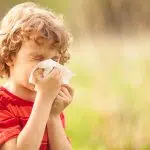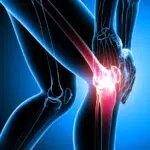Whistle-stop tour of acne
What is it?
Acne is caused by glands under the skin producing too much oil (sebum). This can block the pores, which become infected with bacteria. Your body’s natural response to an infection is inflammation – visually, this is when the skin becomes red, the spots become larger and filled with pus.
Through this process, the spot will eventually heal but it can reoccur and cause scarring.
Who gets it?
It’s most common in adolescents (85% of 16-18 year olds) and young adults (up to age 25) due to a change in hormone levels, but it can really occur at any age for a variety of reasons [1].
What causes it?
A variety of factors contribute to the development of acne and the exact mechanisms are poorly understood. The most common causes of acne are:
- Hormones – most notably during puberty, in young people. The hormones can cause the pores to enlarge and produce more sebum, leading to greasy acne-prone skin [2].
- Bacterial colonisation – it is unclear whether these are intrinsic to skin type or from the environment.
- Genetics – there is a strong link with family history. If your parents have or had acne when they were younger you are more likely to develop acne in general.
- Stress – when you’re stressed, your body produces more cortisol which may contribute to the development of acne.
Other conditions can lead to a flare up of acne [3]:
- Polycystic ovarian syndrome (PCOS) – linked with an increase in certain hormones called androgens that are strongly associated with acne.
- Medications – such as steroids (topical/oral/injected), isoniazid, hormonal treatment, certain antiepileptics and lithium.
- Mechanical trauma – such as tight clothing causing abrasion.
- Makeup/Cosmetics
Contrary to popular belief, there’s actually no strong link between eating fatty foods or chocolate and acne.
What can be done about it?
There are some treatments you can use over-the-counter (OTC) and some that require a doctor to prescribe them. It’s different if you’re pregnant and you need to speak to the doctor for a specific treatment.
For mild acne [4]
The treatment with the best evidence are topical retinoids which you can buy OTC but some versions require a prescription. They help by unblocking the skin pores but like all treatments for acne, they take at least several weeks before you see results. Similarly, some people will have side-effects such as sunburn but these will settle down after a few weeks.
If you have acne with inflammation then a doctor may prescribe a combination of:
- Topical retinoid cream
PLUS - An antibiotic (either a cream or tablet) AND/OR benzoyl peroxide cream
For more severe or resistant acne
This is if you have a large number of spots with severe inflammation, pus and blocked pores. The best treatment for this is isotretinoin and can be associated with a range of side-effects so it will need to be prescribed by a dermatologist under specialist supervision.
SUMMARY:
Having acne can not only feel uncomfortable but it can really impact your mental health. If you are worried always consult your doctor for clarification. For more information and advice please feel free to book an appointment with one of our GPs by either visiting our website or call us on 0203 371 0995. This article is not intended to be medical advice!
References:
[1] https://www.dermnetnz.org/topics/acne [2] Gollnick HP, Zouboulis CC, Akamatsu H. Pathogenesis and pathogenesis related treatment ofacne. J Dermatol. 1991 Sep;18(9):489-99. [3] https://www.nhs.uk/conditions/acne/causes/ [4] https://www.nhs.uk/conditions/acne/treatment/


